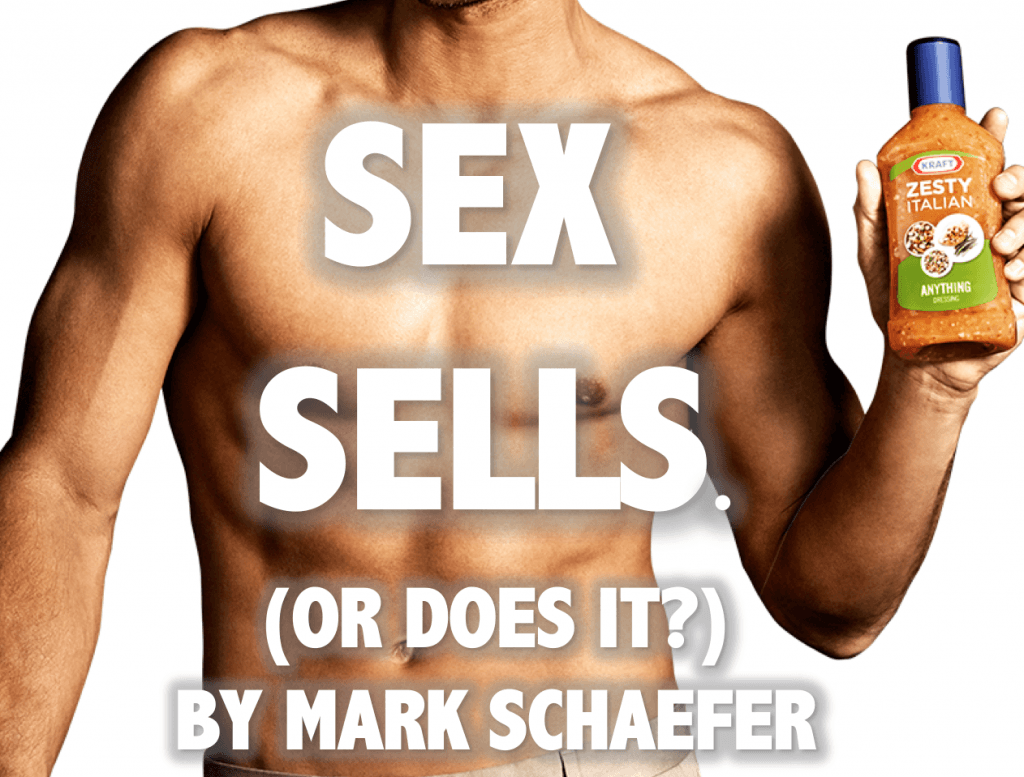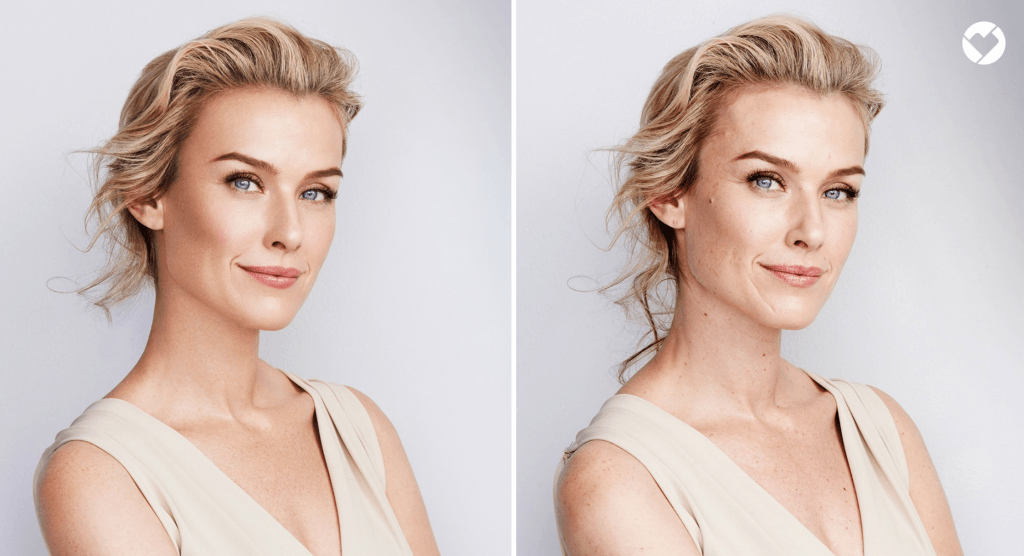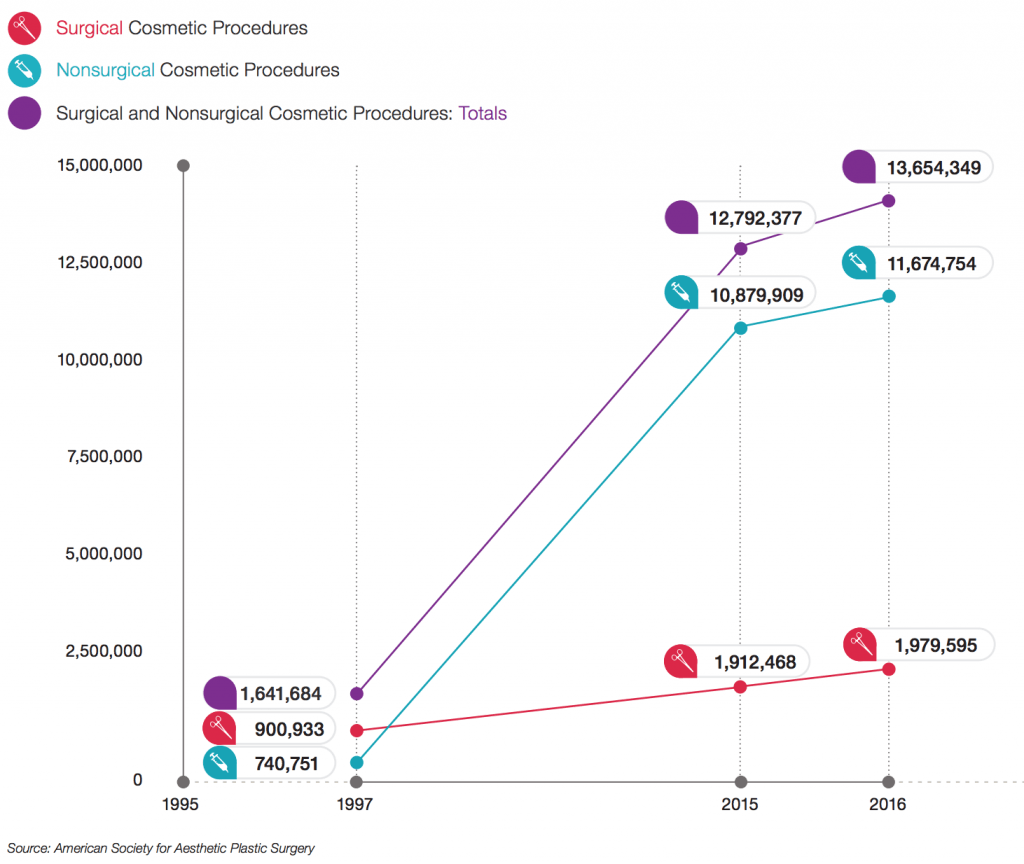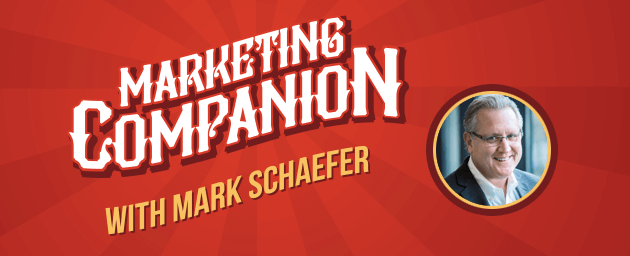By Mark Schaefer
This is a blog post about beauty, sex, and marketing. It’s not a clickbait headline. We’re sailing into new waters today marked by towering waves of change and an undertow of psychological conflict.
Beauty in our culture has become the new battleground in the age of authenticity, a trend that pits nature against nurture, challenges our deepest human desires, and tests whether honesty can have a place in the impossibly airbrushed world of advertising.
Our first stop is the beauty aisle in our local pharmacy.
Let’s get real
CVS, the American pharmaceutical/retail giant, is taking a stand for natural beauty and pledged to stop “materially altering” all of the imagery associated with its beauty products — in stores, on its website, and on social media.
The photographs women see when they go to buy a CVS brand lipstick or perfume will not have been so smoothed, color-corrected, and remastered to present a more natural representation of human beauty.
In addition to pledging not to alter its own imagery, The New York Times reported that CVS is also asking all of the brands it sells (like L’Oréal, and Maybelline) to do the same, or to label retouched images clearly and visibly as “modified.”
The company has created what it is calling a “beauty mark” (see example below), which will be applied to all images to signal truth in advertising.
This is a significant step in a movement to make people seem more real in our advertising. In a world where we demand authenticity! authenticity!, the universe of fashion and beauty has seemed unapproachable and unmovable.
Applause to CVS for taking a stand and giving us permission to be real. Or, at least trying.
How far will this trend go? Will be seeing age spots and laugh lines in beer commercials? In magazine ads for fashion and fragrances? On the Victoria’s Secret angels?
The answer is complex, because we have been conditioned all our lives to know that …
Sex sells.
Here is a humble and honest admission.
I was watching a football game and a commercial repeated all day featuring a very strange-looking woman with a high-pitched, annoying voice.
Here was the thought in my head: “If you’re going to bombard me with this commercial for the next four hours, can you at least put a beautiful person in the ad?”
It made me think about how I’ve been conditioned over my lifetime to expect model-like perfection in our ads, our media, and our culture. I felt guilty that I wanted this less-than-perfect person kicked out of this repetitive ad.
I was conflicted. In my true soul, I want to accept and celebrate everyone. But in my human nature, I am (we all are) profoundly wired for sex that leads to the sustainability of the species, and businesses have capitalized on that fact for decades.
Sex sells (kind of)
Research shows that even across cultures, there are constant and ideal proportions that define human beauty. By appealing to expectations seemingly encoded in our DNA, companies can sell more beer, trucks, and lingerie … or at least they used to. Times are changing.
In preparation for this post I did research to see what the latest thinking on the topic is. Turns out, there are studies that can be twisted to prove just about any position you want to take:
- Sex sells.
- Sex sells, but only to men.
- Sexy ads turn women off unless it is tied to a theme of commitment.
- Sex doesn’t sell.
- Sex-based marketing outperforms most other kinds of marketing.
… who really knows? My head was spinning.
But there is a larger point here. People deserve truth, they are asking for truth, and companies are beginning to deliver it.
A sexified culture
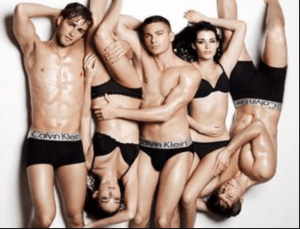
Although there are some bold signs that “natural” appearances are becoming more accepted and rewarded, the trend is more or less negated by the ubiquitous, hyper-sexual expectations amplified by social media and Instagram icons like Kim Kardashian.
What will win? Nature or nurture?
To help sift through this complex topic, I asked several of my smart marketing friends to add their views. I learned a few things, and you will to …
Expert views on the trend toward “natural”


“CVS has an understanding that in today’s world, women are tired of the pressures to be perfect, do it all, and meanwhile, exude ‘acceptable feminine behavior’ at all times.
“Whether it’s for Almay (more natural looking make-up) or Covergirl (more overt statement-making make-up), allowing the model to have a small wrinkle by her eye, freckle on chin, or hair slightly out of place is making both expressions appear more real and honest. It shows that you can express yourself however you want, without the pressure to be perfect.”


“As a mom, I cannot imagine instilling such values in my kids. So, as people over all the world are more connected than ever, I do hope brands like CVS understand that their message of beauty has not only local impact but a global one, as well.”

“Looking at airbrushed fitness models reminds me of their hard work and encourages me to do it too. I guess I just don’t see the drama in making the ad look prettier by removing some lines and spots.”


“I am not convinced. Will you buy a product that makes you average? As enlightened as society may think it is or may want to be, we will always chase the fountain of youth, the golden orb, the carousel ring. The ‘sell’ may just have to be more subtle so we can hide our motives from ourselves.”

“Please stop telling me that I should be different, hide the book that life has written on my face, or yearn for a past that won’t come back. There is NOTHING wrong with wrinkles on my or anybody else’s face. I want to see them.”
I have a few thoughts on this of my own.
Popular culture is determined by economics
How will this trend evolve? Follow the money.
In the end, people will “vote” with their dollars for the position of CVS and the growing number of “natural” proponents, or they will vote for the mythical beauty that we hope and dream might be possible.
Ultimately, popular culture is defined by what makes money. And at record levels, the money is going to cosmetics, aesthetic plastic surgery, and other procedures focused on aspirational beauty. For example, in the past 20 years, spending on cosmetic surgery has exploded:
What is driving this incredible spending on aspirational beauty? Dr. Albert Matarasso, a spokesperson for the American Society of Plastic Surgeones suggests these reasons:
- Growing societal acceptance of cosmetic procedures
- Human nature, which he said inspires self-improvement.
- An improved look, can have an impact on someone seeking a job in a competitive work environment.
- In a rebounding economy, people have the income to spend on procedures.
Is the world moving to “natural?” I think I would have to see a drop in this graph before concluding that our cultural is wholeheartedly embracing crow’s feet and laugh lines.
The freedom to be you

Alicia Keys
Personally I like the natural trend, but I also recognize that if you’re fighting the effects of aging, it is absolutely your right to do whatever you want to do, and that is awesome. I hope we never get to a point where people who want to have cosmetic surgery, wear make-up, and pursue their own version of beauty are looked down upon.
As long as you’re not hurting another person, spend your money however you like.
Having said that, I love the fact that leaders are emerging and becoming role models for alternative views of beauty, notably Alicia Keys, one of my favorite artists. Alicia has been showing up at awards show and television programs with no makeup and natural hair treatments.
This is so important because there is an overriding issue here, and I believe it is the most important consideration of all in this debate. We need people like Alicia Keys for our children.
Taking the pressure off our kids
A few years ago I wrote about a teen, Olympia Nelson, who had posted about the increasing sexual competition on Instagram:
I’m anxious that girls are higher up on the ladder than I am: boys are looking at her, not me. I have to look like her to be worthy of boys’ attention. Boys’ tastes are not always sophisticated. The aesthetic yardstick is what they see in pornography. So girls have to conform to what boys see in pornography. And then girls post photos to ”out-hot” the other girls by porn star criteria.
Ever since I read those lines, I have been haunted by the idea that our children have this bizarre template set before them every day on all media, a template we are reinforcing with our own air-brushed marketing efforts. It is not unusual for a young girl to prep for hours to get her Instagram selfie just right. Research is emerging that shows social media is literally making our children sick from the performance pressure.
We’re not going to turn-off phones, stop pornography, or end the objectification of people any time soon.
But I believe we MUST start a change and mindfully lean in to nature over nurture everywhere we can. To strike a better balance in the world, businesses need to purposefully elevate examples of true beauty, rational beauty, authentic beauty, for our children and for ourselves.
It’s a fascinating topic. What do you think? Nature or nurture? What wins? What’s next?

